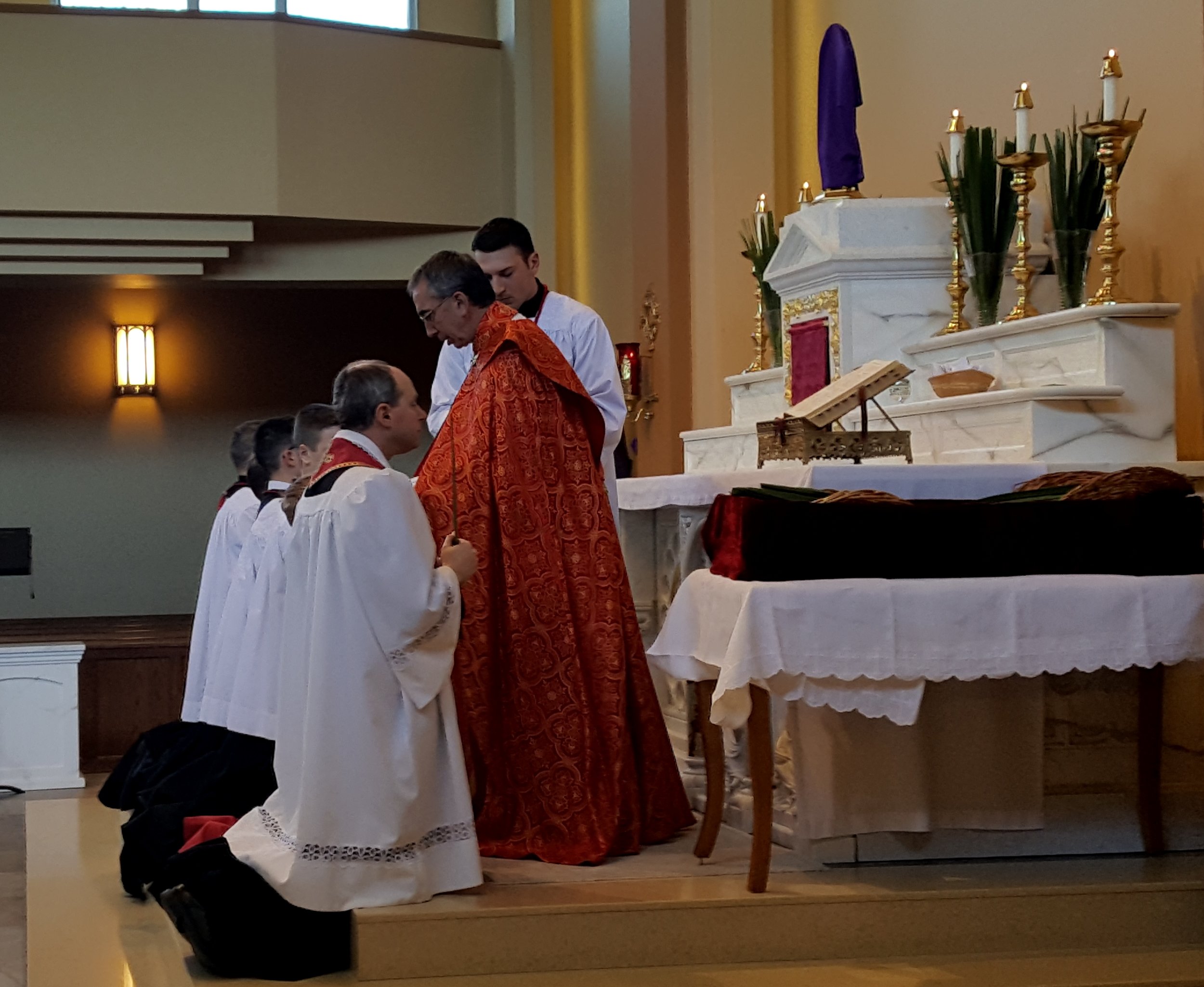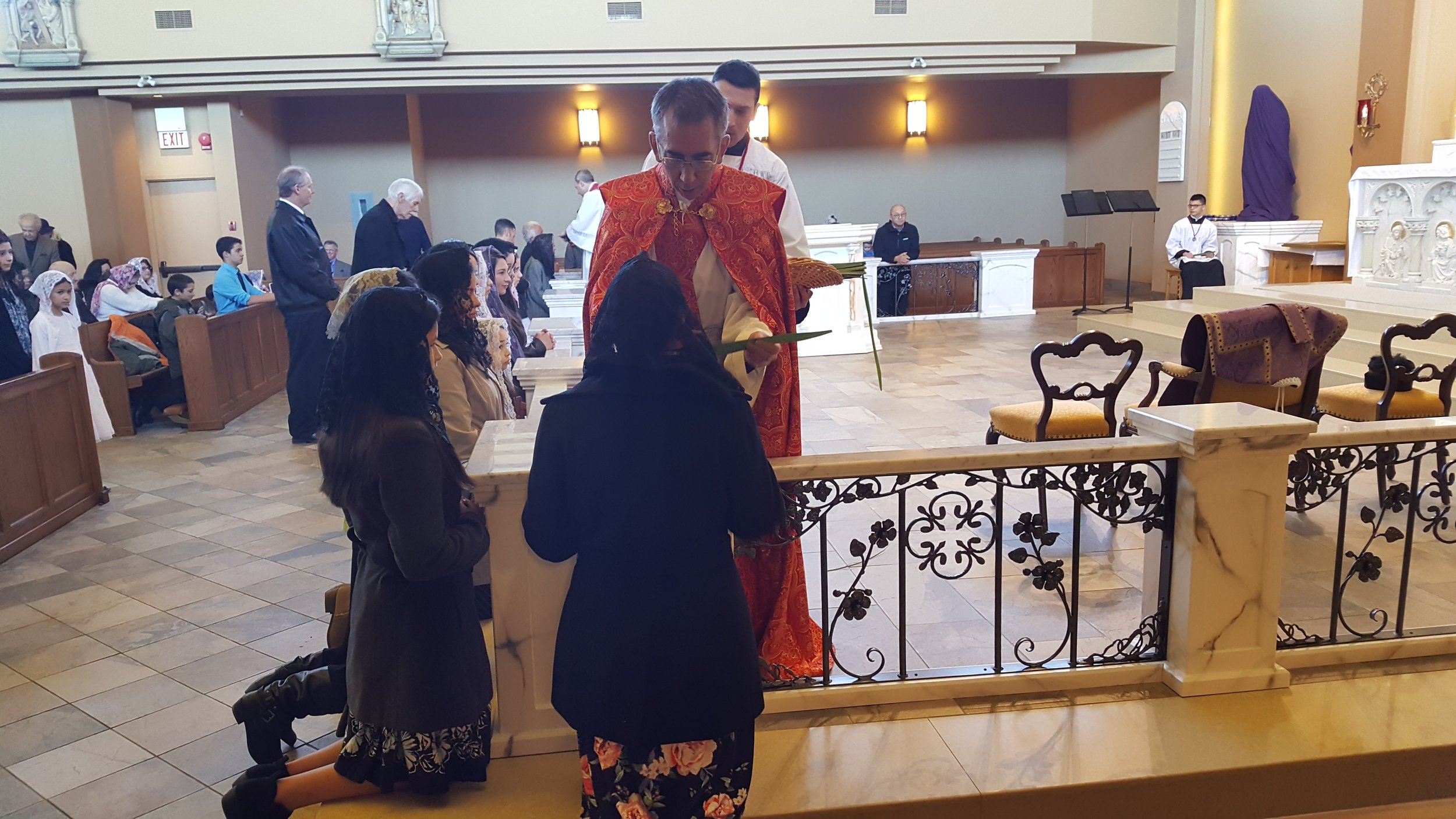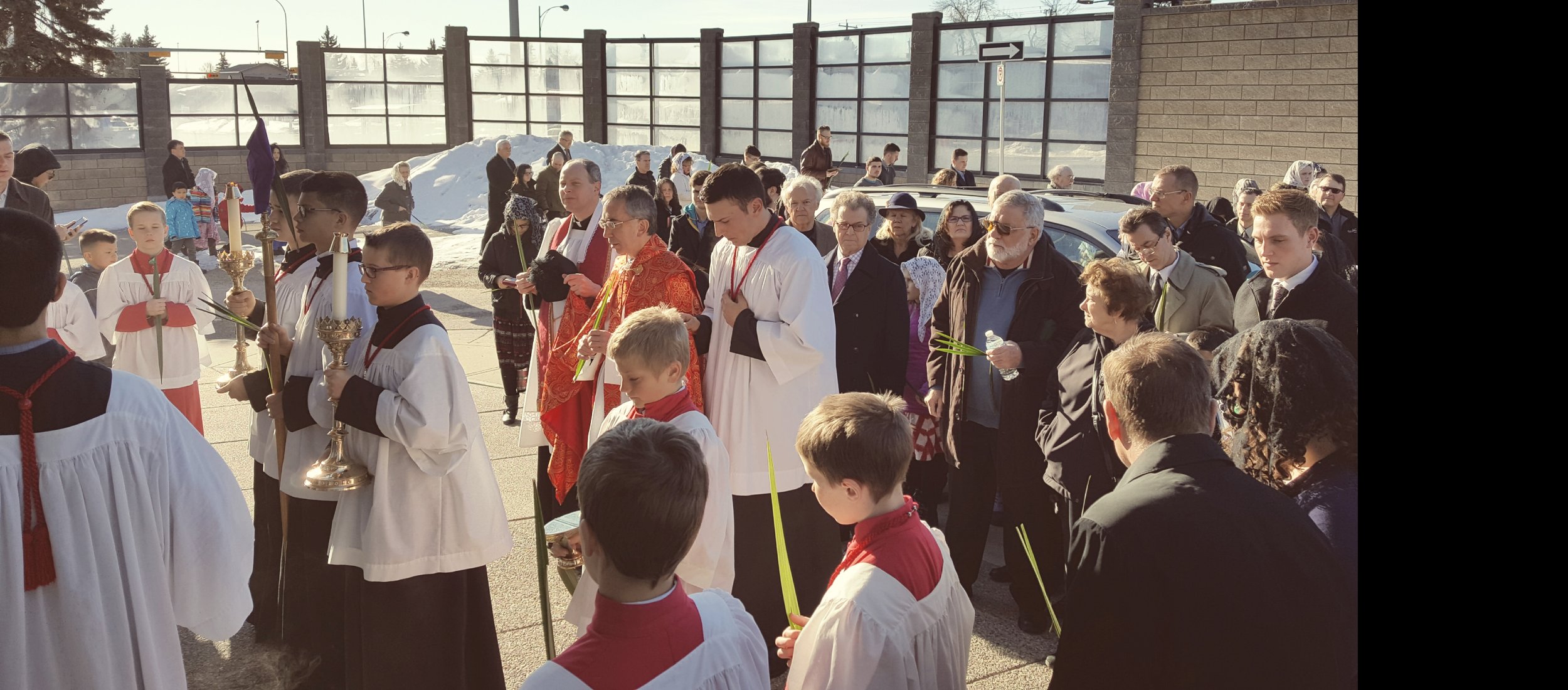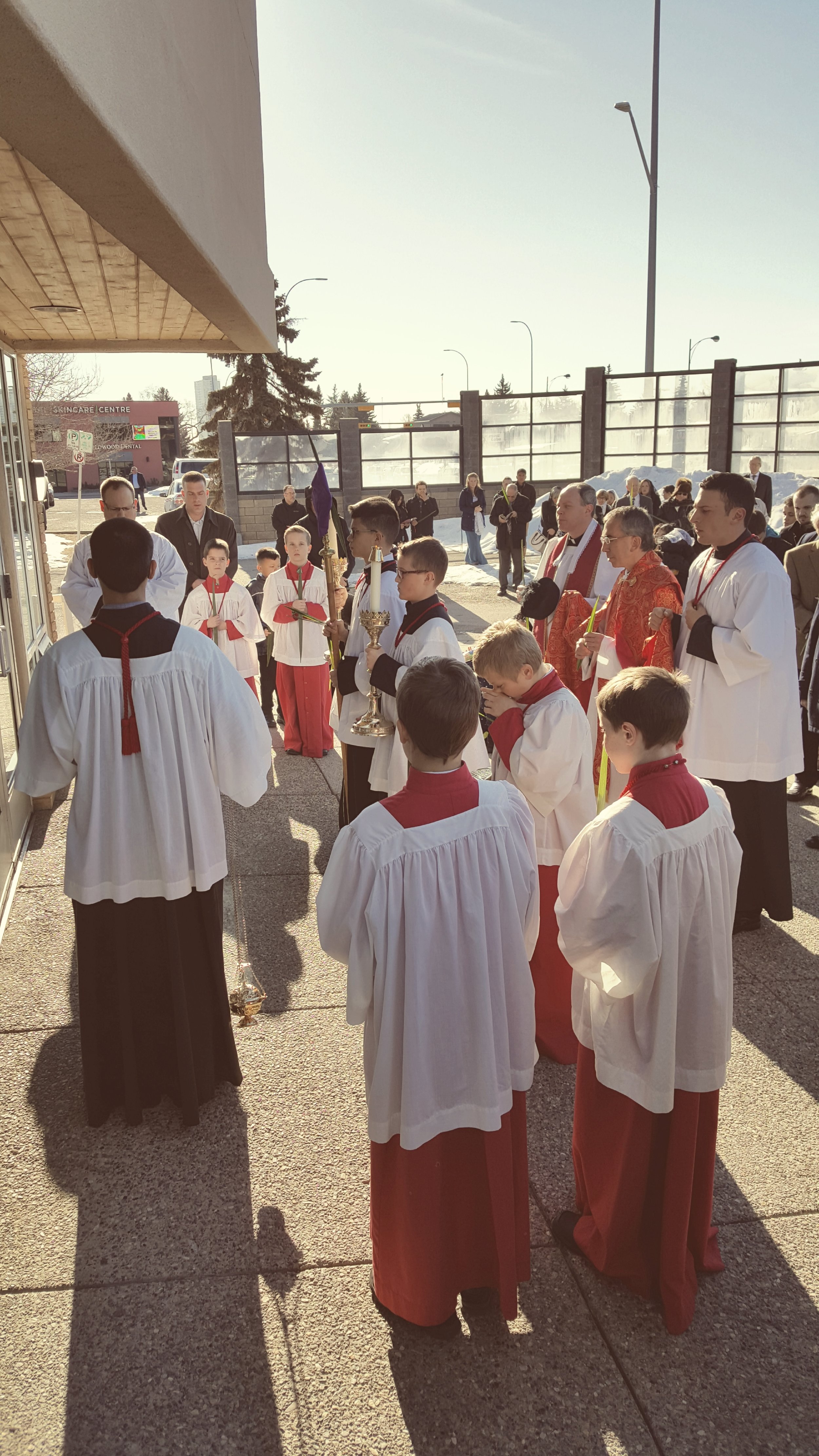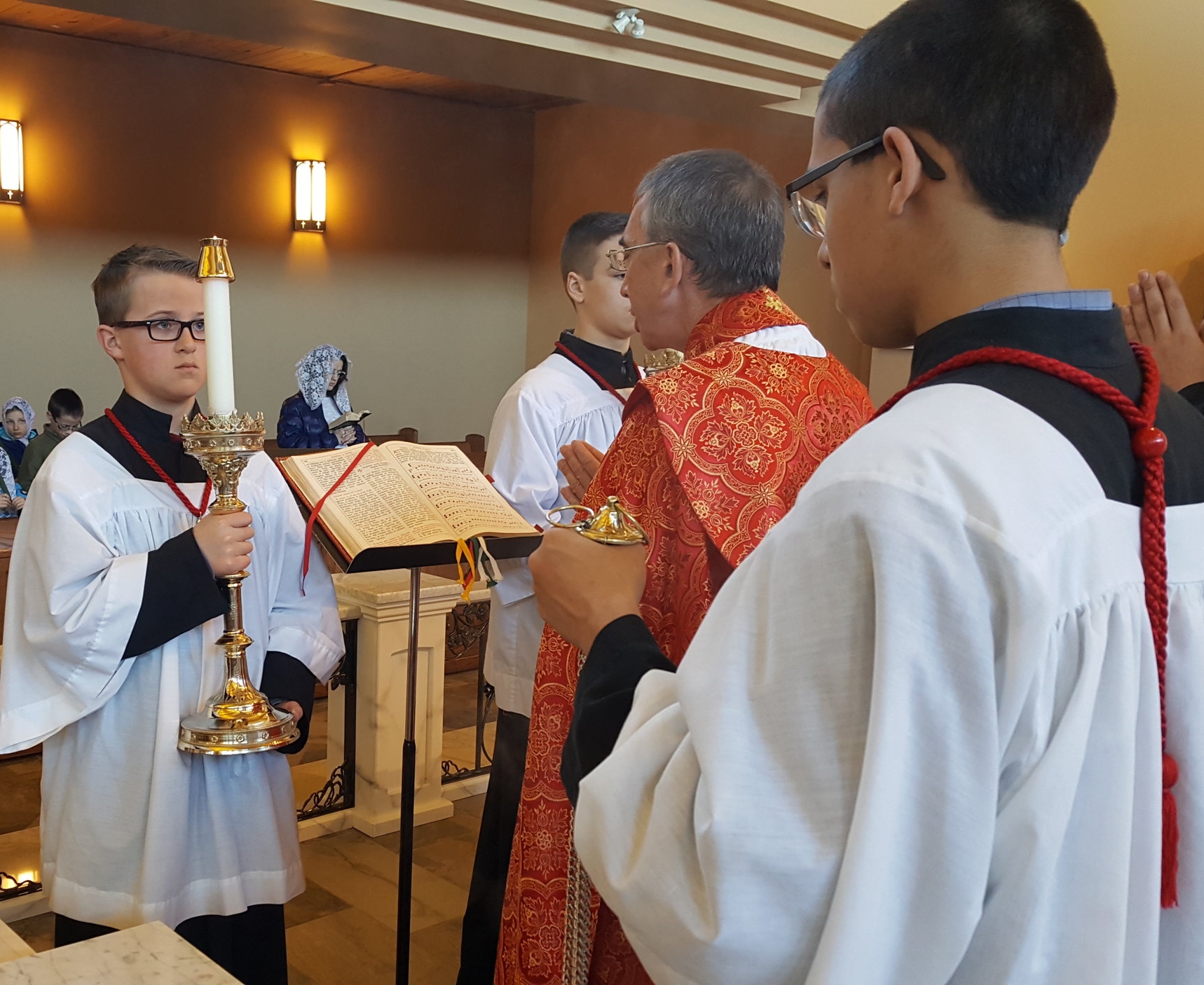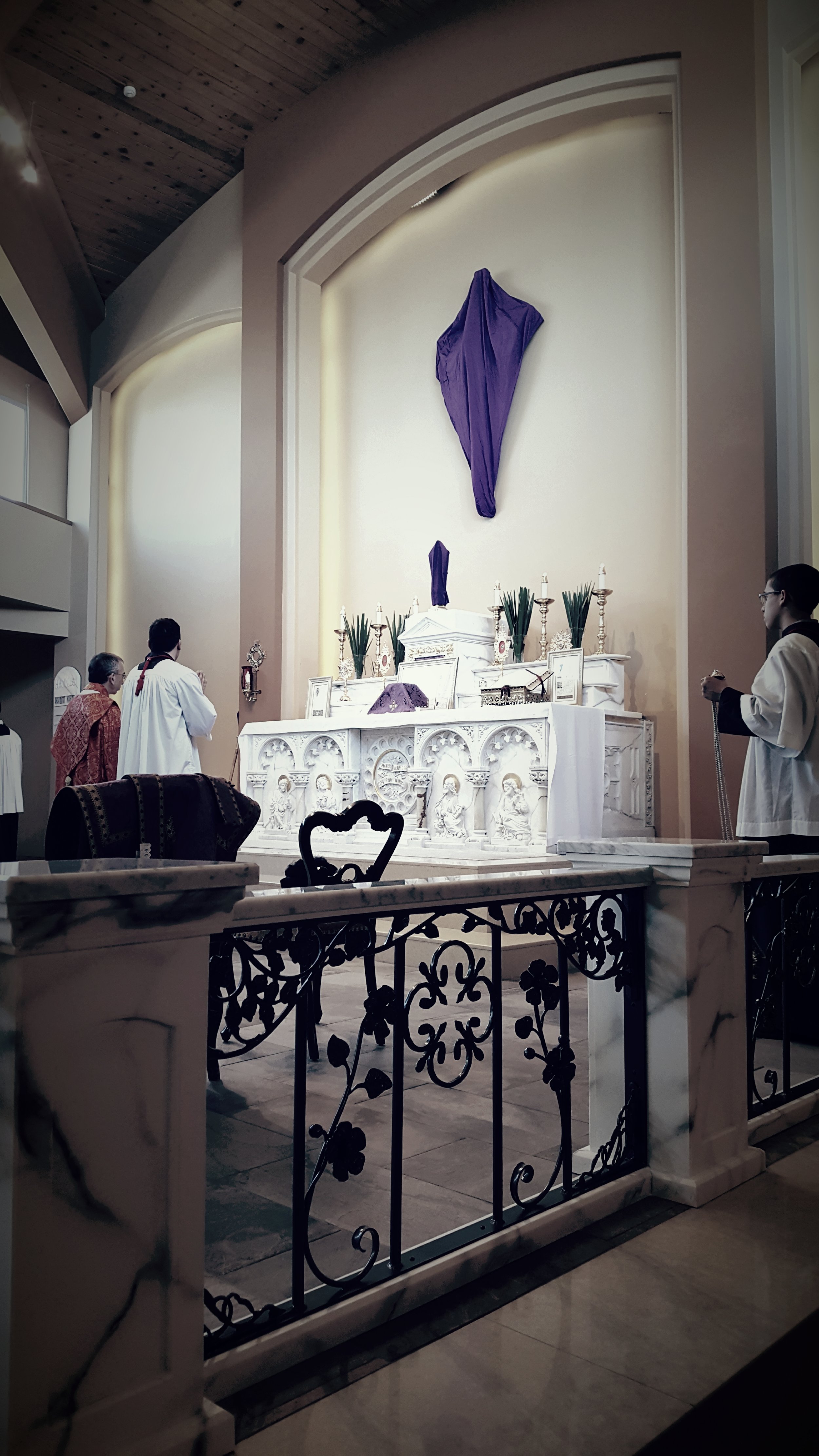The following conference was given by Archbishop Lefebvre at Montreal, Canada in 1982. It demonstrates by personal experience the tragic corruption of modernism right from the time of Pope Pius XI. The Archbishop describes the extraordinary influence of Monsignor Annibale Bugnini in the framing of the New Mass and how his unprecedented daring brought about the "approval" of this protestantized liturgy. This account of his personal experiences is the very clear demonstration of why Archbishop Lefebvre had to disobey so as to not participate in the self-destruction of the Church. We present it to our readers to allow them to share a more personal viewpoint of the Archbishop's battle for the Church and for the Faith.
The Infiltration of Modernism in the Church (Part I)
BRIEF HISTORY
I'm happy to remark that every where in the world, everywhere in the Catholic world, courageous people are uniting together around priests who are faithful to the Catholic faith and to the Catholic Church, so as to maintain Tradition, which is the bulwark of our Faith. If there is a movement as general as this it is because the situation in the Church is truly serious.
If Catholics and good priests, some of whom have served in parishes for thirty years to the great satisfaction of their parishioners, have been able to beat the insult of being treated as disobedient rebels and dissidents, it could have only have been so as to maintain the Catholic Faith. They do it knowingly, following the spirit of the martyrs.
Whether one is persecuted by one's own brethren or by the enemies of the Church, it is still to suffer martyrdom, provided it be for the maintaining of the Faith. These priests and faithful are witnesses of the Catholic Faith. They prefer to be considered rebels and dissidents rather than lose their Faith.
Throughout the entire world we are in the presence of a tragic and unheard of situation, which seems never to have happened before in the history of the Church. We must at least try to explain this extraordinary phenomenon. How has it come to pass that good faithful and priests are obliged to fight to maintain the Catholic faith in a Catholic world, which is in the process of totally breaking up?
It was Pope Paul VI himself who spoke of self-destruction within the Church. What does this term self-destruction mean, if it is not that the Church is destroying herself by herself, and hence by her own members. This is already what Pope St. Pius X said in his first encyclical when he wrote: “Henceforth the enemy of the church is no longer outside the church, he is now within." And the Pope did not hesitate to designate those places where he was to be found: "The enemy is found in the seminaries." Consequently, the holy Pope St. Pius X already denounced the presence of the enemies of the Church in the seminaries at the beginning of the century.
Obviously the seminarians of the time, who where imbued with modernism, sillonism and progressivism, later became priests. Some of them even became Bishops and among them were even some Cardinals. One could quote the names of those who were seminarians at the beginning of the century and who are now dead but whose spirit was clearly modernist and progressivist.
Thus already Pope St. Pius X denounced this division in the Church, which was to be the beginning of a very real rupture within the Church and within the clergy.
I am no longer young. During my whole life as a seminarian, as a priest and as a Bishop I have seen this division. I saw it already at the French seminary at Rome where by the grace of God I was able to study. I must admit that I was not very keen to do my studies in Rome. I would personally have preferred to study with the seminarians of my diocese in the Lille Seminary and to become an assistant vicar, and finally a parish priest in a small country parish.
I longed simply to maintain the Faith in a parish. I saw myself somewhat as the spiritual father of a population to which I was sent to teach the Catholic Faith and morals. But it happened otherwise. After the First World War my brother was already at Rome, for he had been separated from the family by the circumstances of the war in the north of France. Consequently my parents insisted that I go to be with him. "Since your brother is already at Rome, at the French seminary, go and join him so as to continue your studies with him." Thus I left for Rome. I studied at the Gregorian University from 1923 to 1930. I was ordained in 1929 and I remained as a priest at the seminary during one year.
THE FIRST VICTIMS OF MODERNISM
During my Seminary years tragic events took place, which now remind me of exactly what I lived through during the Council. I am now in practically the same situation as our Seminary Rector at the time. Fr. Le Floch. When I was there he had already been Rector of the French Seminary at Rome for thirty years. From Brittany, he was a very outstanding man and as strong and firm in the Faith as Brittany granite. He taught us the Papal encyclicals and the exact nature of the Modernism condemned by St. Pius X, the modern errors condemned by Leo XIII and the liberalism condemned by Pius IX. We liked our Fr. Le Floch very much. We were very attached to him.
But his firmness in doctrine and in Tradition obviously displeased the progressive wing. Progressive Catholics already existed at that time. The Popes had to condemn them.
Not only did Fr. Le Floch displease the progressives, but he also displeased the French government. The French government feared that by the intermediary of Fr. Le Floch and by that formation, which was given to the seminarians at the French Seminary in Rome traditional Bishops, would come to France and would give to the Church in France a traditional and clearly anti-liberal direction.
For the French government was Masonic and consequently profoundly liberal and frightened at the thought that non-liberal Bishops could take over the most important posts. Pressure was consequently exerted on the Pope so as to eliminate Fr. Le Floch. It was Francisque Gay, the future leader of the M.R.P., who was in charge of this operation. He came to Rome to exert pressure on Pope Pius XI, denouncing Fr. Le Floch as being, so he said, a member of.’Action Française" and a politician who taught his seminarians to also be members of "Action Française.’
This was all nothing but a lie. For three years I heard Fr. Le Floch in his spiritual conferences. Never did he speak to us of "Action Française." Likewise people now say to me: "You were formerly a member of Action Française.’” I have never been a member of "Action Française."













